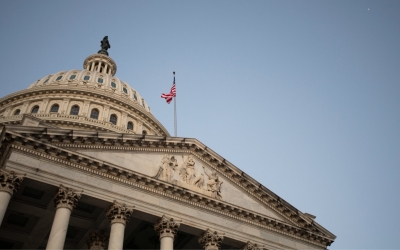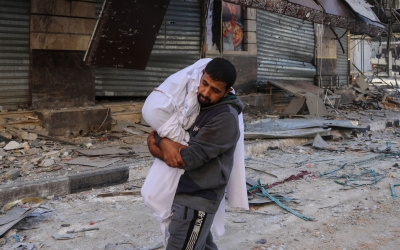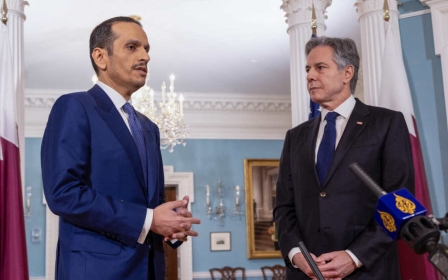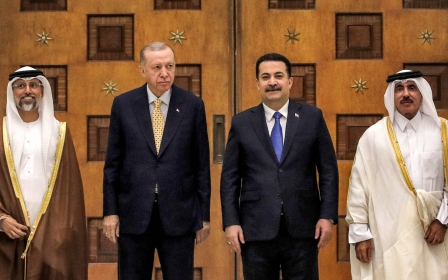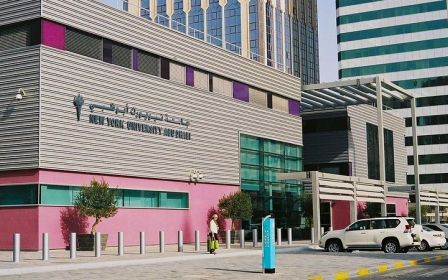Smear campaign targeted Qatar with deepfake videos and ads in New York's Times Square
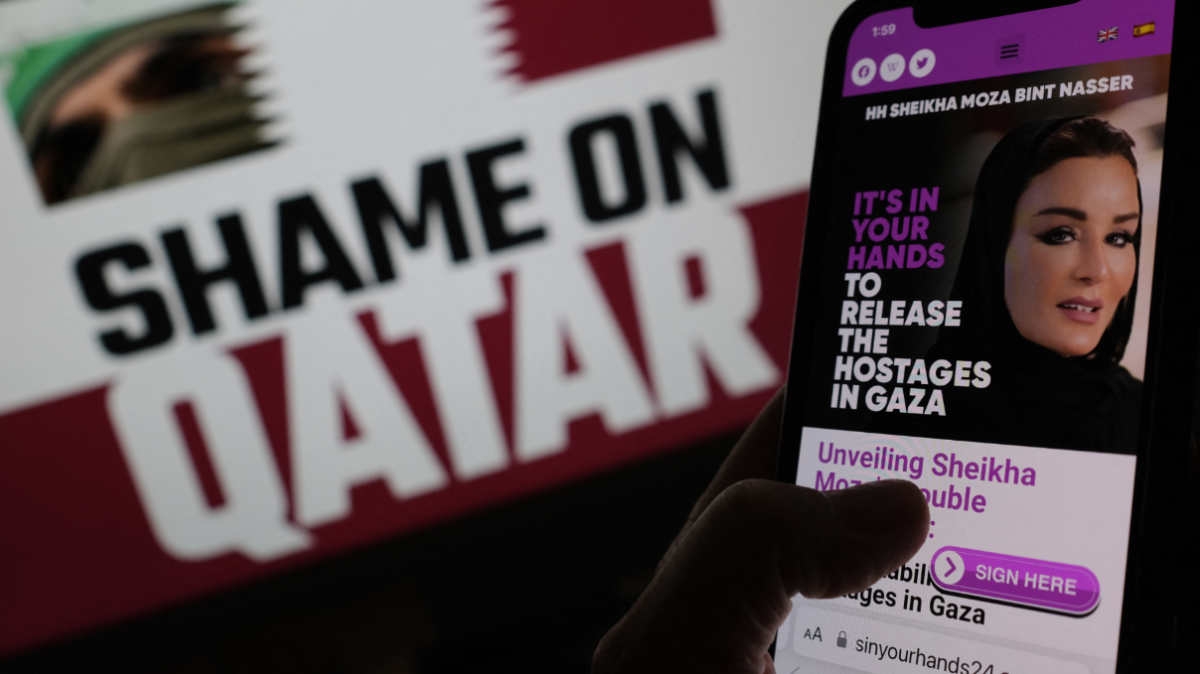
A widespread media campaign began targeting Qatar in early 2024, with far-reaching ads that appeared in New York’s Time Square and a Conservative political event where former US President Donald Trump spoke.
The campaign, revealed in a report released in July and viewed by Middle East Eye, comes as criticism of the wealthy Gulf state rises among some lawmakers in Israel and the US, as Doha works with Egypt to mediate a ceasefire for Israel’s war on Gaza.
The campaign appeared to start after 7 October with anti-war slogans in Lebanon, where Hezbollah has been trading near-daily fire with Israel. However, by early 2024, it had reached France and the US.
Anti-Qatar ads filled with disinformation on illegal immigration, social unrest and the Qatari emir’s mother were published in Spanish, French, and English, achieving a minimum reach of 41,074,052 users on Facebook alone.
The report's authors, Sohan Dsouza, a London-based researcher formerly with the MIT Media Lab, and Doha-based disinformation researcher Marc Owen Jones said the project cost likely exceeded $100,000 and may have reached more than half the population of France.
New MEE newsletter: Jerusalem Dispatch
Sign up to get the latest insights and analysis on Israel-Palestine, alongside Turkey Unpacked and other MEE newsletters
One website created by the murky campaign was called "Shame on Qatar" and accused Doha of "funding terrorists". It called on people to divest or boycott Qatar-owned institutions like the Paris Saint-Germain Football Club, Harrods, and the Plaza Hotel in New York City.
The ad was also featured at the high-profile Conservative Political Action Conference in February. It appeared before former US President Donald Trump spoke and was set to thriller music with the headlines, “Imagine a nation collaborating against US interests with Iran” and “Sanction on Qatar Now!”
Qatari emir's mother targeted
A separate website called, “It’s in your hands” (IIYH), targets Sheikha Moza bint Nasser, the mother of Qatar’s emir, Tamim bin Hamad al-Thani. The website features a video purporting to show the Qatari royal admitting to supporting Hamas in the past - and then apologising for that support. But the video is not real, it's a deepfake, according to researchers.
IIYH’s logo also appeared in a February ad attacking bint Nasser in New York's Times Square. The billboard belonged to New York ad giant, Outfront Media, according to the report. Separately, the website carried a petition addressed to bint Nasser attributed to a man named "John Anderson”. The report said Anderson and an organisation called, ”Citizens of Humans Lives" are fake.
The report also revealed a campaign on Telegram titled, “Made in Qatar.”
The authors said it was aimed at “portraying Qatar as supporting mass migration of supposedly crime-inclined non-European populations into Europe, sponsoring Islamist radicalization of Muslim communities in Europe, and supporting radical politics on Western campuses”.
The authors also found that the campaign led to social polarisation. Over 400 Facebook comments viewed by the report's authors were linked to an ad in the UK called “SaveEurope”. They found instances of Islamaphobia, fatalistic views about cultural changes in Europe and proponents of the Great Replacement theory, which alleges European leaders aim to use Muslim migrants to replace ethnic Europeans.
Using data from Facebook's ad library, the researchers traced some of the ad pages to LT Media, a Vietnamese marketing group.
The report, however, doesn't cover who is behind the campaign.
Qatar's strained ties
Qatar has previously clashed with Israel and its Gulf neighbours. In 2017, Saudi Arabia and the United Arab Emirates imposed a blockade on Qatar alleging it supported "terrorists", a charge Doha vehemently denied.
Qatar weathered the embargo and has since moved on, working to mend ties with its neighbours by using events like the 2022 World Cup to showcase its improved relations with other regional states. While ties with Riyadh have improved, analysts say there is still distrust between Doha and Abu Dhabi.
Qatar, along with Egypt, won plaudits in November for brokering a short-lived truce between Israel and Hamas. However, as ceasefire talks drag on, Doha has come under criticism.
Qatar was riled after Netanyahu in February called on Doha to pressure Hamas into releasing Israeli hostages. Qatar's Foreign Ministry spokesman Majed al-Ansari said it was "nothing but a new attempt by him to delay and prolong the war for reasons that have become clear to everyone”.
In May, Israel banned the state-owned media channel, Al Jazeera.
Meanwhile, with a ceasefire still out of reach, Doha has faced some criticism in US Congress.
The Senate’s draft fiscal 2025 National Defense Authorization Act includes an amendment backed by Republican Senator Rick Scott that calls for the Pentagon to issue a report on the value of the al-Udeid military base in the Gulf state.
The Wall Street Journal and The Washington Post have reported that both Qatar and Egypt warned Hamas officials that they face possible arrest, freezing of their assets, sanctions, and expulsion from Doha if they don’t agree to a cease-fire with Israel.
Middle East Eye delivers independent and unrivalled coverage and analysis of the Middle East, North Africa and beyond. To learn more about republishing this content and the associated fees, please fill out this form. More about MEE can be found here.


